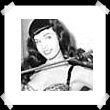| View previous topic :: View next topic |
| Author |
Message |
endo

Joined: 14 Mar 2004
Location: Seoul...my home
|
 Posted: Wed Sep 22, 2004 1:20 pm Post subject: Top 10 Korean words a newbey should learn! Posted: Wed Sep 22, 2004 1:20 pm Post subject: Top 10 Korean words a newbey should learn! |
 |
|
Comming to Korea in a couple of days and I was just wondering what many of you think are the essential Korean words to learn.
Thanks |
|
| Back to top |
|
 |
peppermint

Joined: 13 May 2003
Location: traversing the minefields of caddishness.
|
 Posted: Wed Sep 22, 2004 1:55 pm Post subject: Posted: Wed Sep 22, 2004 1:55 pm Post subject: |
 |
|
anyong haseyo- hello (
Juseyo- please give me ( whatever),
Kamsamnida- thank you
olmayo- how much is it?
('m shooting for ease of pronunciation not accurate romanization here) |
|
| Back to top |
|
 |
kylehawkins2000

Joined: 08 Apr 2003
|
 Posted: Wed Sep 22, 2004 2:03 pm Post subject: Posted: Wed Sep 22, 2004 2:03 pm Post subject: |
 |
|
In addition to the words above these might be useful:
Annyoung hi gye seyo (goodbye)
soju (Korean alcohol)
kimchi (Korean food)
maekju (beer)
anja (sit down)
Jo younghi hey (be quiet)
Son dei ji ma (don't touch)
Jo shim hee (be careful)
chon chon hee (slow down) |
|
| Back to top |
|
 |
sonofthedarkstranger
Joined: 15 Jan 2003
|
 Posted: Wed Sep 22, 2004 2:19 pm Post subject: Posted: Wed Sep 22, 2004 2:19 pm Post subject: |
 |
|
Choyong hey!--be quiet/shut up.
Kongbu hey!--study.
Kongbu anhamyon, omonihante chonwahakoya--If you don't do wour work, I will call your mother.
Kongu anhamyon, chip-ey motka--If you don't do your work, you can't go home. |
|
| Back to top |
|
 |
I_Am_Wrong
Joined: 14 Sep 2004
Location: whatever
|
 Posted: Wed Sep 22, 2004 3:27 pm Post subject: Posted: Wed Sep 22, 2004 3:27 pm Post subject: |
 |
|
| hey those commands are so useful! can you post some more commands for class? anyways, in addition to the aformentioned I will add "yogi" as in the bear. Comes in handy with taxi cabs....translates to "here" as in stop here. |
|
| Back to top |
|
 |
Pulgasori

Joined: 14 Sep 2004
Location: En Route to Daejeon
|
 Posted: Wed Sep 22, 2004 3:32 pm Post subject: Posted: Wed Sep 22, 2004 3:32 pm Post subject: |
 |
|
Na Neun *your name* ib nee da.
I am ___.
It's been awhile, maybe I don't remember it right. Always seemed to make a good first impression for me, even if I couldn't say much to back it up in Korean. |
|
| Back to top |
|
 |
kangnamdragon

Joined: 17 Jan 2003
Location: Kangnam, Seoul, Korea
|
 Posted: Wed Sep 22, 2004 3:48 pm Post subject: Posted: Wed Sep 22, 2004 3:48 pm Post subject: |
 |
|
Please be careful of what you learn here. These words are correct, but if you say the right one to the wrong person, you would be completely rude and incorrect. For example, one would never say "anja" to anyone but a child or close friend. Most of the above examples are actually impolite and should not be spoken in those manners.
I suggest you start with a basic traveler's dictionary and learn the proper pronunciation by learning how do read as soon as possible. |
|
| Back to top |
|
 |
casey's moon
Joined: 14 Sep 2004
Location: Daejeon
|
 Posted: Wed Sep 22, 2004 4:19 pm Post subject: Posted: Wed Sep 22, 2004 4:19 pm Post subject: |
 |
|
| kangnamdragon is right... pls be careful about speaking in the low form. even when you're talking with your students (not kindie, but middle school), it is nice to use the polite form. Some of my friends/students have told me that they really liked their Korean teachers who used polite form, and were more likely to show respect with them. |
|
| Back to top |
|
 |
kangnamdragon

Joined: 17 Jan 2003
Location: Kangnam, Seoul, Korea
|
 Posted: Wed Sep 22, 2004 4:26 pm Post subject: Posted: Wed Sep 22, 2004 4:26 pm Post subject: |
 |
|
I should add that teachers should not be speaking Korean to their child students anyway. Any Korean word that a teacher knows should be a word taught to the child in English. They learn a lot faster than we do.
I will add something constructive, but I highly recommend one not use the romanization and learn how to read �ѱ� ASAP.
Hello : an-nyeong-ha-se-yo �ȳ��ϼ���
Good bye (I remain) : an-nyeong-hi ka-se-yo �ȳ��� ������
Good bye (I leave.) : an-nyeong-hi kye-se-yo �ȳ��� �輼��
Nice to meet you : ban-gap seum-ni-da
�ݰ����ϴ� (This is also, nice to see you. So don't be surprised if someone you have already met says this to you or says, "Nice to meet you" in English)
Thank you : kam-sa-ham-ni-da �����մϴ�
Where is the bathroom (toilet)? : hwa-jang-sil-i eo-di-e-yo
ȭ��� ���? Learn this in �ѱ� as some places do not have signs in English.
I'm sorry : mi-yan-ham-ni-da �̾��մϴ�
How much does it cost? : eol-ma-ye-yo ����?
Please give me ___ .: ___ chu-se-yo
___ �ּ���.
Sino-Korean Numbers (used for money)
1 �� il
2 �� i
3 �� sam
4 �� sa
5 �� o
6 �� yuk
7 ĥ chil
8 �� pal
9 �� gu
10 �� ship
20 �̽� i-ship
30 ��� sam-ship
40 ��� sa-ship
50 ���� o-ship
100 �� baeg
500 ���� o-baeg
1,000 õ cheon
10,000 �� man
100,000 �ʸ� shim-man
1,000,000 �鸸 baeg-man
Putting together Sino-Korean numbers is a piece of cake. Split up the number into its place values and tack them together.
Example: 495 = 4x100 + 9x10 + 5x1 = ��鱸�ʿ�
Example: 20,000 = 2x10,000= �̸� |
|
| Back to top |
|
 |
endo

Joined: 14 Mar 2004
Location: Seoul...my home
|
 Posted: Wed Sep 22, 2004 9:26 pm Post subject: Posted: Wed Sep 22, 2004 9:26 pm Post subject: |
 |
|
Thanks everybody.
I have a couple Korean language dctionaries and well as a CD so that should help as well. Just have to work on the pronounciation.
ex. bundang
not bundaang
but bundong
right? |
|
| Back to top |
|
 |
eamo

Joined: 08 Mar 2003
Location: Shepherd's Bush, 1964.
|
 Posted: Wed Sep 22, 2004 9:40 pm Post subject: Posted: Wed Sep 22, 2004 9:40 pm Post subject: |
 |
|
| endo wrote: |
Thanks everybody.
I have a couple Korean language dctionaries and well as a CD so that should help as well. Just have to work on the pronounciation.
ex. bundang
not bundaang
but bundong
right? |
Sorry, no. Bun-daang is a better pronunciation. Or you could romanize it like this...Poon-daang. |
|
| Back to top |
|
 |
agraham

Joined: 19 Aug 2004
Location: Daegu, Korea
|
 Posted: Wed Sep 22, 2004 10:41 pm Post subject: Posted: Wed Sep 22, 2004 10:41 pm Post subject: |
 |
|
| eamo wrote: |
| endo wrote: |
Thanks everybody.
I have a couple Korean language dctionaries and well as a CD so that should help as well. Just have to work on the pronounciation.
ex. bundang
not bundaang
but bundong
right? |
Sorry, no. Bun-daang is a better pronunciation. Or you could romanize it like this...Poon-daang. |
My book "Teach Yourself Korean" says �� is pronounced like "bat" and �� is pronounced like "bought". It also says �� is "bait" and �� is "bet".
"Roadmap to Korean" agrees with this, except that Roadmap says that �� and �� are both "bait".
Now "Lonely Planet Seoul" says something different: �� is "bought", �� is "butt", and for �� and �� it agrees with Teach Yourself that they are "bait" and "bet" respectively.
So which do you think a native Korean would agree with? The textbooks, and not the guidebook, right? Wrong. I've asked three different people now, and they all say that Lonely Planet has it right and the other books have it wrong...
After listening as carefully as I can to Korean people talking, I've come to the conclusion that all three are correct. What is important is that when you speak, �� is "wider mouthed" than �� and �� is a smidge wider than ��. |
|
| Back to top |
|
 |
Chillin' Villain

Joined: 13 Mar 2003
Location: Goo Row
|
 Posted: Wed Sep 22, 2004 10:53 pm Post subject: Posted: Wed Sep 22, 2004 10:53 pm Post subject: |
 |
|
Less orthodox ones that you're gonna hear foreigners embedding within their English all the time...
ah-jeo-shi: married man, or man of middle-age upwards (sorta)... a way to address shopkeepers, taxi drivers, and dudes passed out on the street, soju-style
ah-joo-ma: more or less the female equivalent of ajeoshi... except usually you'll be addressing them as the servers in a restaurant (and not so much as taxi drivers or drunkards)
(Please don't get too pedantic on my definitions - in true Dave's ESL fashion- guys and girls... not writing an etymology textbook here!)
way-gook or way-gook salam: foreigner. Get used to this one, whether it being Korean passersby on the street, or other foreigners in self-reference.
di-bi-di, bi-di-o, kom-pyoo-tah, tee-bee....
Hahaha... These ones'll be easy!
Any other not-so-common-in-the-Lonely-Planet-Korean-phrasebook words that we so often splice into our typically English speech? |
|
| Back to top |
|
 |
Drakoi

Joined: 26 Sep 2003
Location: The World
|
 Posted: Thu Sep 23, 2004 4:48 am Post subject: Posted: Thu Sep 23, 2004 4:48 am Post subject: |
 |
|
I thought shut up was shikiro! or something like that
and of course theres:
Joe-ha - I like it
Shiroh - I hate it
Pegapa - I'm hungry
Pepulo - I'm full
Gwenchana (yo) - it's okay, or I'm alright (a good way to decline offers)
You will always hear people say
Jajeung-na - It's annoying
if you're teaching, here's a few good ones
ANJA! means sit down
keuh-gye mal-hey means say it louder
Tashi-malhey is say it again |
|
| Back to top |
|
 |
Drakoi

Joined: 26 Sep 2003
Location: The World
|
 Posted: Thu Sep 23, 2004 4:51 am Post subject: Posted: Thu Sep 23, 2004 4:51 am Post subject: |
 |
|
two more important ones
Hajimah
and
Andaeh
both kind of mean 'stop it' or 'don't do it' |
|
| Back to top |
|
 |
|

